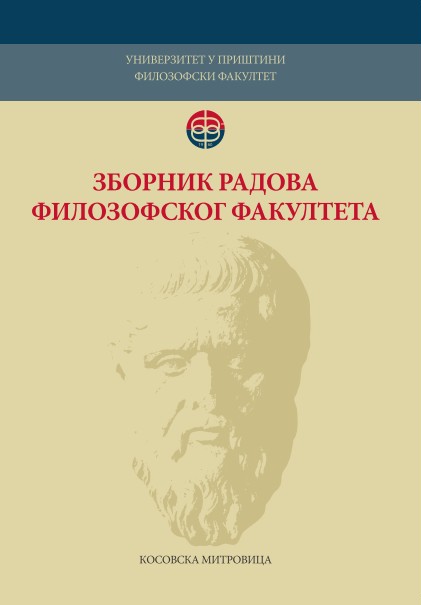Да ли је Одисеј филозоф?
Is Odysseus a Philosopher?
Author(s): Irina DeretićSubject(s): Philosophy
Published by: Филозофски факултет, Универзитет у Приштини
Keywords: Odysseus; Homer; 'Nobody'; apparent truth; philosophical self-knowledge; identity
Summary/Abstract: In this paper, the author attempts to demonstrate that certain philosophical questions are articulated in Homer's Odyssey, especially those that consider the relationship between truth, probability, and falsehood. First, the author discusses the following two assertions: 'Nobody is my name' and 'Nobody will I eat last among his comrades.' When asked by the one-eyed giant Polyphemus what his name really is, Odysseus replies that his name is 'Nobody'. Thereon, Polyphemus says that he will eat 'Nobody', considering 'Nobody' to be 'Somebody'. What appears to be a word-game is in fact an indicator of the necessity to determine the role of negative pronouns in a language, as well as to question their referential status. The negative pronouns like nobody or no one imply the non-existence of someone who can be described as 'nobody' or 'no one'. They can only designate, but they are non-referential. Because Polyphemus does not understand the sense of the negative pronouns, he believes that there is such a man, who is called 'Nobody', and whom he will eat. Therefore, one may claim that Homer's Odysseus discovers the meaning and role of the negative pronouns in a natural language, as well as how the misuse of these words can become a generator in lying and deceiving. Homer distinguishes two types of lies: 1) the absolute falsehoods, which are lies under all circumstances, and 2) the falsehoods which 'seem like the truth'. Most of Homer's Odysseus fantastic tales are of that kind - they are neither true nor false, but they 'seem like the truth'. The truth status of fiction as resembling the truth is one of Homer's discoveries, since he held that his main protagonist's narrations are neither true nor false, but they resemble the truth. The narrations should be as consistent and plausible as possible, in order to describe not what really happened, but 'what could have been happened', as Aristotle would claim. In the course of the paper, the author has critically discussed the philosophical motives and reasons of Odysseus' 'adventures', as well as the philosophical character of his journey as such. One may assume that Odysseus in his journey is motivated by the urge to survive in almost impossible circumstances. Yet, there are lot of sections in Homer's Odyssey which call in question such an assumption. Odysseus, for example, wants to hear the deadly song of the sirens, not because it is tempting and beautiful, but because it provides an access to the total knowledge. Odysseus' return to Ithaca might be understood as the end of a process of self-formation and self-discovery, in which Odysseus discovers the things and himself as being significantly different and more complex than they and he were in the beginning of his journey.
Journal: Зборник радова Филозофског факултета у Приштини
- Issue Year: 47/2017
- Issue No: 4
- Page Range: 27-42
- Page Count: 16
- Language: Serbian

